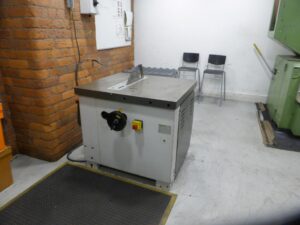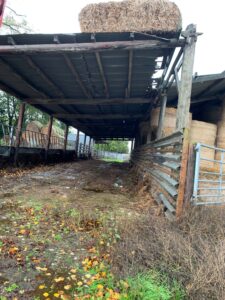Company fined after agency worker injured using unguarded machine
A packaging manufacturer has been fined for safety breaches after a worker received severe hand injuries at a factory in Yorkshire.
On 15 June 2020 an agency worker injured their fingers when using a table saw without a guard at Loadhog Limited’s site at Hawke Street, Sheffield.
The worker, who was operating the saw, received the injuries when his fingers came into contact with a rotating saw blade. Three fingers were partially severed although they were later reattached in hospital.
A Health and Safety Executive (HSE) investigation found that the company had failed to carry out a suitable and sufficient risk assessment, resulting in a failure to provide a suitable guard, allowing access to the exposed parts of the saw blade.

HSE has guidance for people and companies who own, operate or have control over work equipment and how to use it safely.
At Sheffield Magistrates’ Court on 25 April, Loadhog Limited of The Hog Works, Hawke Street, Sheffield pleaded guilty to breaching Regulation 11 of the Provision and Use of Work Equipment Regulations 1998 and Regulation 3 of the Management of Health and Safety at Work Regulations 1999. They were fined £100,000 and ordered to pay £3,139.75 in costs.
After the hearing the HSE inspector Laura Hunter said: “This incident could so easily have been avoided by simply implementing the correct control measures and safe working practices.
“HSE has clear guidance on the provision and use of work equipment that can help in preventing incidents like this from happening.
“Companies should be aware that HSE will not hesitate to take appropriate enforcement action against those that fall below the required standards.”
This HSE prosecution was brought by HSE Enforcement Lawyers Jon Mack and Kate Harney and supported by Paralegal Officer Rebecca Forman.
Notes to Editors:
- The Health and Safety Executive (HSE) is Britain’s national regulator for workplace health and safety. We prevent work-related death, injury and ill health through regulatory actions that range from influencing behaviours across whole industry sectors through to targeted interventions on individual businesses. These activities are supported by globally recognised scientific expertise.
- More information about the legislation referred to in this case is available.
- Further details on the latest HSE news releases is available.


 The HSE investigation found one of the barns used as an employee through route was deemed unsafe to enter due to its poor structural state. Seymour Stevens Ltd were aware of this but had decided not to repair the shed due to costs. A number of electrical faults were also identified.
The HSE investigation found one of the barns used as an employee through route was deemed unsafe to enter due to its poor structural state. Seymour Stevens Ltd were aware of this but had decided not to repair the shed due to costs. A number of electrical faults were also identified. Speaking after the hearing, HSE inspector Peter Bruce said: “While agriculture accounts for just one percent of the working population, it accounts for about 20 per cent of workplace fatalities.
Speaking after the hearing, HSE inspector Peter Bruce said: “While agriculture accounts for just one percent of the working population, it accounts for about 20 per cent of workplace fatalities. Mr Richardson, from Leicester, was able to reach into the machine and into the capper unit to remove the jammed part at which point, the capper head descended onto his finger, amputating the tip.
Mr Richardson, from Leicester, was able to reach into the machine and into the capper unit to remove the jammed part at which point, the capper head descended onto his finger, amputating the tip.